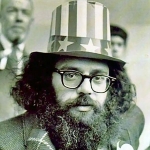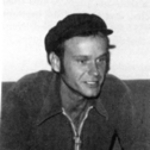Background
Michael Skau was born on January 6, 1944, in Chicago, Illinois, United States. He is a son of Walter F. Skau and Martha Skau, maiden name Marich. He was raised on the South Side of Chicago.

Michael Skau is a member of the Modern Language Association.
Michael Skau is a member of the American Association of University Professors.
Michael Skau, critic, educator, author, poet.
Michael Skau, critic, educator, author, poet.
Michael Skau, critic, educator, author, poet.
Champaign, IL, United States
Michael Skau earned a Bachelor of Arts in 1965, a Master of Arts in 1967, and a Doctor of Philosophy from the University of Illinois at Urbana-Champaign.
2130 Arapahoe Ave, Boulder, CO 80302, United States
Michael Skau attended Naropa University.








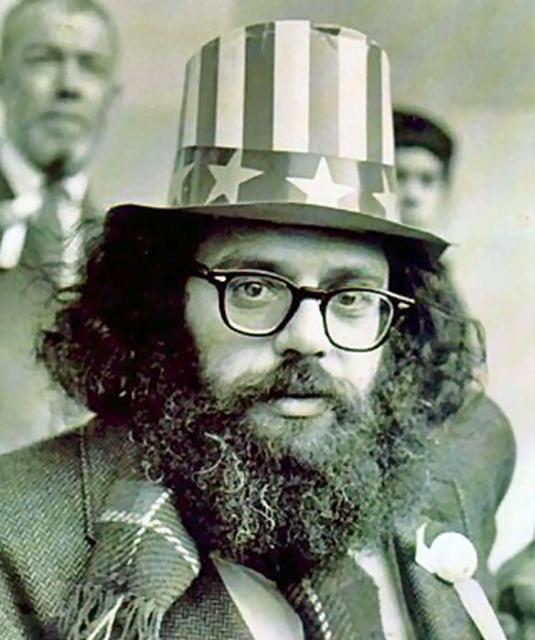


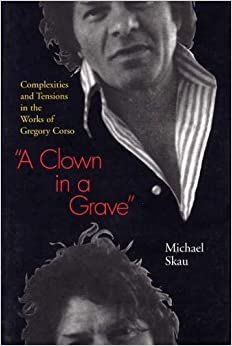
(Using a number of critical approaches, Michael Skau exami...)
Using a number of critical approaches, Michael Skau examines Gregory Corso's complex imagination, his humor, and his poetic techniques in dealing with America, the Beat generation, and death. Skau covers the complete works of Corso, one of the four major Beat Generation writers (with Jack Kerouac, Allen Ginsberg, and William S. Burroughs) who attempted to provide an alternative to what they saw as the academic forms of literature dominating American writing through the 1940s and 1950s.
https://www.amazon.com/Clown-Grave-Complexities-Tensions-Gregory/dp/0809322528/ref=sr_1_3?dchild=1&keywords=Michael+skau&qid=1596054262&s=books&sr=1-3
1999
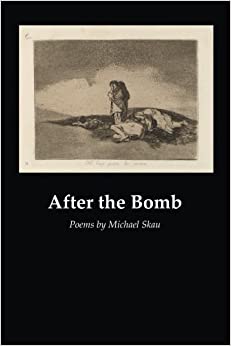
(After the Bomb is a series of syllabic poems envisioning ...)
After the Bomb is a series of syllabic poems envisioning a post-apocalyptic world where the survivors struggle for a meager existence and for moral and ethical sanity in a necessarily brutal, violent, and inhospitable environment. The narrator and his fellow sufferers gradually develop a vulnerable sense of community and tentatively grow toward a qualified humanism, with which they cannot always feel comfortable.
https://www.amazon.com/After-Bomb-Michael-Skau/dp/1625492383/ref=sr_1_6?dchild=1&keywords=Michael+skau&qid=1596054262&s=books&sr=1-6
2017
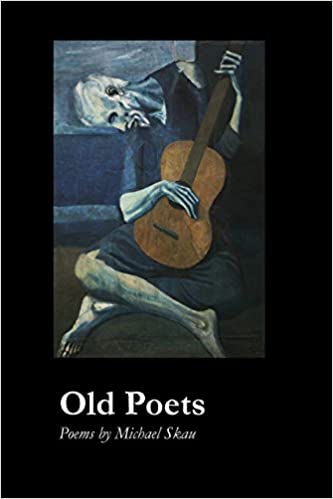
(This collection, by Michael Skau, is a series of poems re...)
This collection, by Michael Skau, is a series of poems reflecting specific attitudes toward poets and poetry (by extension, toward Art and Life), ranging from conventional adherence to structure, rhyme, meter, and theme to the enthusiastic embrace of experimental techniques and topics. The poems embody different voices and approaches and vary in their form from traditional modes to rebellious non-conformity.
https://www.amazon.com/Old-Poets-Michael-Skau/dp/1625492774/ref=sr_1_5?dchild=1&keywords=Michael+skau&qid=1596054262&s=books&sr=1-5
2018
Michael Skau was born on January 6, 1944, in Chicago, Illinois, United States. He is a son of Walter F. Skau and Martha Skau, maiden name Marich. He was raised on the South Side of Chicago.
Michael Skau earned a Bachelor of Arts in 1965, a Master of Arts in 1967, and a Doctor of Philosophy from the University of Illinois at Urbana-Champaign. His dissertation, completed in 1973, was on Themes and Movements in the Literature of the Beat Generation. Skau studied under Allen Ginsberg, Gregory Corso, and William S. Burroughs, Jr. at Naropa Institute (now University) in 1975.
Michael Skau was hired by the Department of English at the University of Nebraska at Omaha in the Fall of 1973 and continued teaching there until his retirement in 2011. In 1965-1973, he worked as a research/teaching assistant at this university, then in 1973-1978 - as an assistant professor, in 1978-1985 - as an associate professor, and in 1985 he became a professor of English. He was Chair of the department from 2001 through 2005 and is now an emeritus professor.
Michael Skau's interest in writing literary criticism on the Beat Generation stems essentially from the teaching of courses on Beat writers and from discovering a paucity of valuable analysis of their works. Instead, most writers about the Beats seem enchanted by their lives rather than by their literature. Through publications, he hopes to show that traditional critical approaches, particularly New Criticism, can provide valuable insights into this literature. As his dissertation was on Themes and Movements in the Literature of the Beat Generation, he has continued to investigate the works of these writers since that. He works on researching articles on the teaching of Beat literature, William Blake's prosody, and Farina's Been Down So Long It Looks like Up to Me.
Michael Skau has published books on the Beat poets Lawrence Ferlinghetti and Gregory Corso and articles on Ferlinghetti, Corso, Richard Brautigan, William S. Burroughs, Jerzy Kosinski, and Jack Kerouac. He contributed to Dictionary of Literary Themes and Motifs, edited by Jean-Charles Seigneuret, 1988; and Right Brain Vacation Photos: Omaha Magic Theatre New Plays and Production Photographs, 1972-1992, edited by Jo Ann Schmidman, Sora Kimberlain, and Megan Terry, 1992. His poems were published in Echoes of Yesterday, edited by Cynthia A. Stevens, 1994, and in various periodicals. For his creative writing, poetry splits almost equally between poems which are formal and those which are free. In terms of the themes, Skau's poems focus on the emotional responses of ordinary people, on the complexities of human needs, on the refusal of people to accept what too often seems the inevitability of a perverse and unfriendly fate, and on their crippled triumphs in dragging themselves above these obstacles.
Michael Skau taught English at the University of Nebraska at Omaha for 37 years. He has published more than a hundred poems in such periodicals as Laurel Review, Kansas Quarterly, Passaic Review, Carolina Quarterly, Northwest Review, Midwest Poetry Review, Midwest Quarterly, South Carolina Review, Texas Review, California Quarterly, Paddlefish, and Hawai'i Review, among many others.
(This collection, by Michael Skau, is a series of poems re...)
2018(After the Bomb is a series of syllabic poems envisioning ...)
2017(Using a number of critical approaches, Michael Skau exami...)
1999Quotations: "For both my critical and creative writing, I see literature as a window: first, we can look through the window to see the topic of the literature and its characters; second, we can draw back our vision to look at the window itself, its shape and form; and finally, we can see ourselves reflected in the window's glass. This may possibly seem simplistic, but it has deep significance for me as a critic, a writer, and a teacher."
